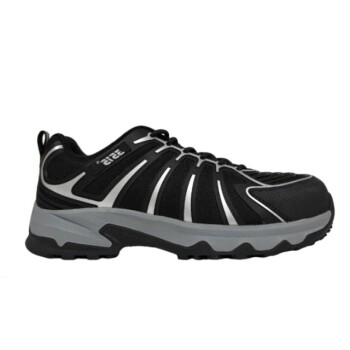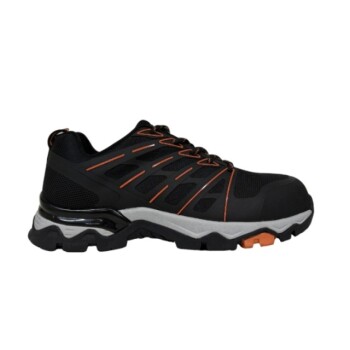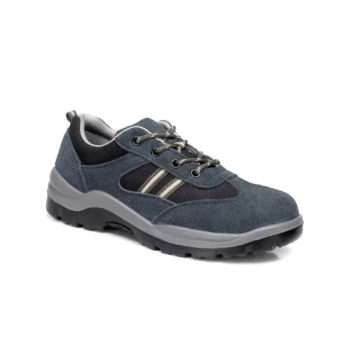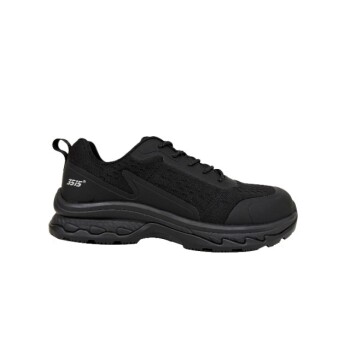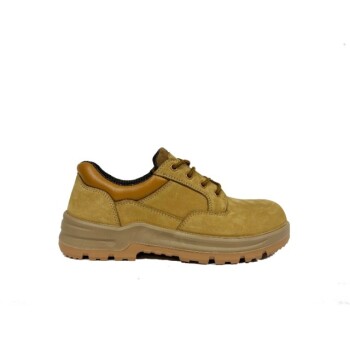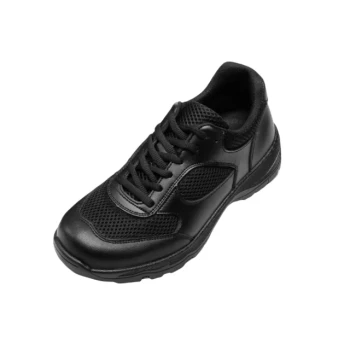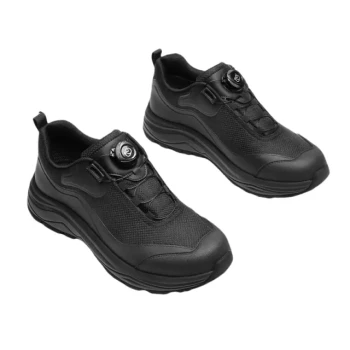Expert help is recommended when selecting safety shoes to ensure the footwear provides the correct type of protection for your specific work environment and fits properly to prevent discomfort and secondary injuries. Without this guidance, you risk choosing a shoe that fails to protect you from the actual hazards you face.
Safety footwear is a highly specialized piece of Personal Protective Equipment (PPE). An expert's role is not just to find your size, but to help you conduct a risk assessment, translating your workplace hazards into the specific technical features and standards a shoe must meet.

Beyond Sizing: The Core Function of Expert Guidance
The most common mistake is viewing safety shoes as just sturdy footwear. Their primary purpose is hazard mitigation, which requires a more detailed analysis than a standard shoe purchase.
Matching Protection to Your Environment
An expert helps identify the unique risks of your workplace. They are trained to ask the right questions about your daily tasks and environment.
This includes assessing needs for slip resistance on wet or oily surfaces, puncture resistance from nails or sharp debris, or protection from chemical splashes.
Decoding Safety Standards and Symbols
Safety footwear is rated according to international or national standards (e.g., ASTM, ISO). These ratings are communicated through a complex system of codes and symbols.
An expert can decipher these codes, explaining the difference between a basic steel toe cap (SB) and a shoe with anti-static properties (A) or a heat-resistant outsole (HRO), ensuring your choice complies with safety regulations.
The Critical Importance of a Proper Fit
While it seems basic, an incorrect fit is a significant safety issue. A shoe that is too loose can be a trip hazard, while a shoe that is too tight can cause blisters, bunions, and fatigue.
This discomfort is not just a nuisance; it can be a dangerous distraction in a hazardous environment. An expert ensures the fit accommodates foot swell during the day and works with any necessary orthopedic insoles.
Understanding the Inevitable Trade-offs
Selecting the right safety shoe always involves balancing competing priorities. An expert helps you navigate these choices to find the optimal solution for your specific role.
Protection vs. Comfort and Fatigue
Shoes with the highest levels of protection, such as those with steel midsoles and metatarsal guards, are often heavier and less flexible.
For a job requiring constant walking or climbing, the resulting fatigue can become a safety risk in itself. An expert can help find a lighter composite-material alternative that still meets your safety requirements.
Material Durability vs. Breathability
Robust materials like full-grain leather offer maximum durability and protection but can be less breathable, leading to discomfort in hot environments.
Conversely, lighter synthetic materials may offer better ventilation but might not stand up to harsh industrial chemicals or abrasion. The right choice depends entirely on your daily tasks and environment.
Making the Right Choice for Your Role
Ultimately, the goal is to select footwear that feels like a natural extension of your body while providing an invisible shield against workplace hazards.
- If your primary focus is heavy industry or construction: You need a boot with a safety toe (steel or composite) and a puncture-resistant plate, prioritizing maximum impact protection.
- If your primary focus is logistics or warehouse work: You should prioritize a certified slip-resistant outsole and a lighter-weight composite toe to reduce fatigue from walking all day.
- If your primary focus is working near live electricity: You must select a shoe with a certified Electrical Hazard (EH) rating, which is constructed without any conductive materials.
Investing in expert advice ensures your safety footwear is a reliable shield, not just another shoe.
Summary Table:
| Key Aspect of Expert Help | Why It Matters |
|---|---|
| Hazard & Risk Assessment | Identifies specific workplace dangers (slips, punctures, chemicals) to match the correct protective features. |
| Decoding Safety Standards | Translates complex codes (ASTM, ISO, SB, A, HRO) to ensure footwear meets legal and safety requirements. |
| Ensuring Proper Fit | Prevents discomfort, fatigue, and secondary injuries caused by shoes that are too tight or loose. |
| Balancing Trade-offs | Helps choose between protection vs. comfort and durability vs. breathability for your specific role. |
As a large-scale manufacturer, 3515 produces a comprehensive range of certified safety footwear for distributors, brand owners, and bulk clients. Our experts can help you select the perfect shoe or boot for your specific industry hazards, ensuring optimal protection, comfort, and compliance.
Contact our experts today for a personalized consultation and discover the right safety solution for your workforce.
Visual Guide

Related Products
- Premium KPU Athletic Safety Shoes for Wholesale
- Premium KPU Injection Athletic Style Safety Shoes
- Custom Safety Shoe Manufacturer for Wholesale & OEM Brands
- Wholesale Durable Breathable Safety Boots Custom OEM Manufacturer
- Wholesale Leather Safety Boots with Customizable Protective Toe
People Also Ask
- How do 2D and 3D pressure maps improve patient compliance? Visual Evidence for Protective Footwear Adherence
- How do professional-grade safety shoes reduce injury severity? Mitigate Risks in Construction & Manufacturing
- What are the standard European classifications for safety footwear? A Guide to EN ISO 20345
- Why should the design of high-risk foot protective footwear aim for a higher Pressure Gradient Angle (PGA)?
- Why are safety shoes with slip-resistant soles essential for basement construction? Prevent falls on mossy surfaces.
- How significant are slips, trips, and falls in workplace injuries? The $13 Billion Problem
- Why are industrial-grade safety shoes fundamental risk control equipment? Secure Your Construction Site Operations
- How are boots designed to meet the ASTM standard for puncture resistance? A Guide to Foot Protection
